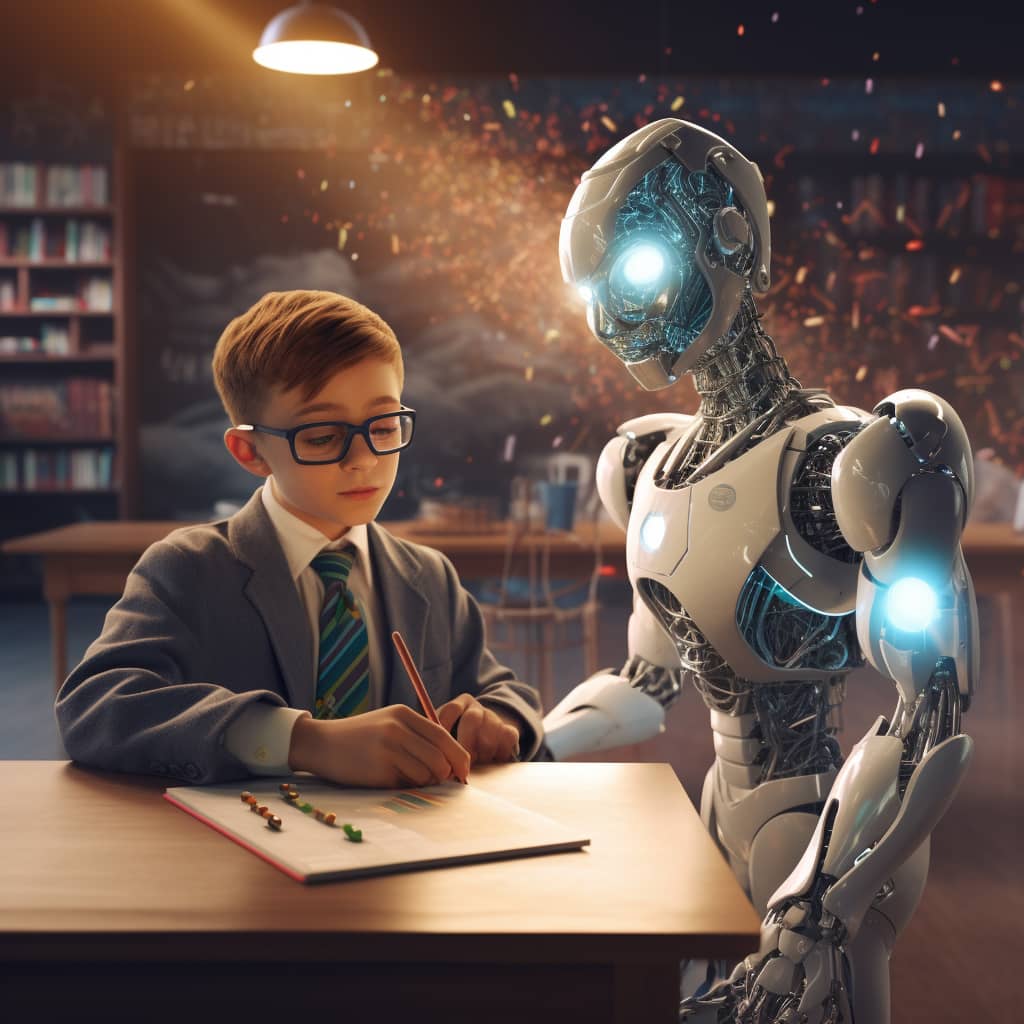by Laura Grassi
Abstract In recent years, the rise of artificial intelligence (AI) has sent shockwaves through society on both economic and cultural levels. This rapidly evolving technology is transforming many aspects of daily life—including how we teach and learn.
OpenAI’s release of ChatGPT—a natural language processing chatbot—in the fall of 2022 brought AI to many people’s attention for the first time. However, AI tools have been part of the tech landscape for years. If you’ve ever played chess against a bot, consulted a virtual assistant like Siri or Alexa or even scrolled through your social media feed, you’ve already interacted with artificial intelligence.
How does AI technologies will integrate into the education sector?
In October 2023, Forbes Advisor surveyed 500 practicing educators from around the U.S. about their experiences with AI in the classroom. Let’s see their responses.
55% of the teachers believe AI has had a positive effect on the teaching and learning process. Less than 1 in 5 cited a negative effect.
60% of Educators use AI in their classrooms and younger teachers are more likely to adopt these tool.
Academic dishonesty tops the list of educators’ concerns about AI in education. Teachers also worry that increased use of AI may mean learners receive less human contact.
Today’s education professionals are watching a technological revolution unfold in real time as AI-enabled learning platforms, educational games, chatbots, virtual tutors and organizational tools become more widespread every day.
As observers on the front lines, teachers are well-positioned to identify major concerns regarding the education sector’s adoption of AI-powered tools. Teachers are worried about issues like cheating, loss of human interaction, job security, equity and safety.
Despite these concerns, U.S. educators seem optimistic about the potential of AI in the classroom. Acknowledging that artificial intelligence will likely play an expanding role in education, most teachers have already begun to integrate AI tools into their daily work routines.
And in Europe? Let’s see some jey hopes and fear of teachers come out from a report study developped by the Asia-Europe Foundation (ASEF)
Key fears and issues mentioned included:
- ethical issues (such as bias, privacy, fairness, and the potential of AI to exacerbate social inequities and replace humans
- the accessibility and cost of AI-enabled tools
- the reliability and accuracy of AI-enabled tools (especially when used for high stakes assessment)
- the possibility that they might undermine human interaction in classrooms
- the challenge of ensuring that students adopt a critical approach to the outputs of AI-enabled tools (such as generative AI)
- the need for comprehensive teachers training .
Key hopes included:
- the possibility that it might provide personalised learning experiences tailored to each student, that it might automate grading, and that it might improve educational equity.
- student focused AI-enabled tools such as student support chatbots that can answer student questions and adaptive tutors, as well as teacher-focused AI-enabled tools that can undertake marking, act as a teaching assistant, or can provide teachers with exactly the information that they want exactly when they want it.
- teachers also need an appropriate level of AI literacy, for which there is a growing need for professional training.




